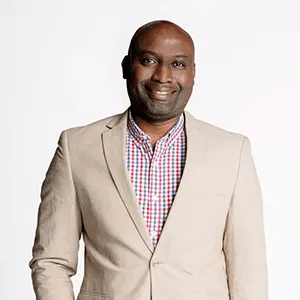The Truth About Relationship Conflict: How Conflict Can Be Good for Your Relationship
|
Getting your Trinity Audio player ready...
|
The word “conflict” often carries negative connotations, especially when it comes to relationships. When you hear about couples who are always disagreeing, you might assume they have a dysfunctional partnership. But in reality, relationship conflict can be a healthy and vital aspect of a strong and thriving relationship.

The key lies in relationship conflict resolution strategies and how you handle disagreements. In this blog, we’ll explore why conflict is important, how it can strengthen your bond, and why couples should embrace conflict as an opportunity for growth.
Why Is Conflict Important in Relationships?
Conflict is an inevitable part of any relationship. According to Dr. Carlos Todd, conflict is not inherently destructive. In fact, when approached with the right mindset, conflict can strengthen your relationship. He says,
“When I fight with you, I’m really fighting for us. If I didn’t care, I wouldn’t bother.”
According to Association of Conflict Resolution Style, Conflict resolution styles account for significant variance in relationship satisfaction: positive problem-solving positively relates, while negative styles like withdrawal (strongest negative) and engagement lower scores; overall, these styles explain 17.8% of satisfaction variance.
In many relationships, conflict arises when differing opinions, desires, or needs come to light. While it may be uncomfortable, addressing these differences head-on can deepen your emotional connection. Avoiding relationship conflict or suppressing issues can lead to resentment, stagnation, and disconnection. Conflict, on the other hand, offers an opportunity to grow together as a couple.
What Is a Healthy Conflict in a Relationship?
So, what defines a healthy conflict? A healthy conflict is one where both partners engage respectfully, listen to each other’s perspectives, and work toward a resolution that benefits both. Healthy conflict doesn’t involve personal attacks or belittling the other person. Instead, it focuses on addressing the issue at hand while maintaining mutual respect. A conflict that is handled well can lead to a deeper understanding of each other’s needs and strengthen the bond between partners.

One study by researchers Amie M. Gordon and Serena Chen at the University of California found that couples who fight frequently but feel understood by their partners report high relationship satisfaction. In their research, Gordon found that couples who discussed their conflicts and felt heard were more satisfied than those who avoided conflict altogether.
How to Handle Conflict in a Relationship
Learning how to handle conflict in relationships effectively is crucial for maintaining harmony and connection. Here are a few relationship conflict resolution strategies that can help:
- Communicate Clearly
When a disagreement arises, take the time to explain how you feel and why. Rather than attacking your partner, explain the issue and how it affects you. For instance, in a situation where you feel upset about your partner leaving the house in disarray, saying, “I love our home and would appreciate if we could keep it cleaner together” is a way of showing care without escalating the conflict. - Listen to Understand
One of the most important aspects of relationship conflict resolution is ensuring both parties feel understood. This means active listening, asking questions, and showing empathy. This approach allows couples to connect on a deeper level and fosters emotional well-being during the holidays and beyond. - Stay Calm
It’s easy to let emotions spiral, but staying calm during a disagreement helps prevent things from getting out of hand. If you feel yourself getting too emotional, take a break and come back to the conversation when you can speak with a clear mind. - Find Solutions Together
The ultimate goal of any conflict should be finding a solution that works for both partners. Instead of “winning” the argument, focus on solving the problem together. This builds teamwork and a sense of partnership.
Why Couples Should Embrace Conflict
Many couples fear conflict, believing it signals trouble. However, embracing conflict can actually help prevent bigger issues from brewing. Conflict can be an opportunity to address long-standing concerns that might otherwise go unspoken. Dr. Todd emphasizes, “Engaging in conflict isn’t going to end the relationship, it’s avoiding the conflict that might.”
Rather than viewing conflict as a negative, try reframing it as a necessary tool for growth. By addressing challenges as they arise, couples can learn more about each other’s values, priorities, and desires, and ultimately build a stronger foundation for the future.
Conflict Style Quiz: Understand Your Approach to Conflict
Every couple has a unique way of dealing with conflict. To improve conflict management in the holiday season or any time of the year, it’s helpful to understand your conflict style. Are you someone who avoids confrontation, or do you dive into discussions headfirst? Taking a conflict style quiz can help both partners understand their tendencies and how to navigate disagreements more effectively. Knowing your conflict style and your partner’s can create more empathy and allow you to work together more harmoniously.
The Importance of Conflict in Building Stronger Relationships
Conflict is not the enemy of a strong relationship – it’s a tool for building deeper intimacy. When managed properly, conflict can reveal what really matters to each person and strengthen your problem-solving skills as a couple. Conflict in relationships can push both partners to grow emotionally and mentally, fostering better communication, resilience, and connection.
FAQs
Conclusion
Relationship conflict doesn’t have to be something to fear or avoid. When approached with understanding, respect, and a willingness to listen, conflict can be an opportunity to strengthen your bond and grow as a couple. By utilizing relationship conflict resolution strategies and embracing the importance of conflict, couples can deepen their understanding of each other and build a stronger, healthier relationship.
If you’re struggling with conflict in your relationship, consider taking the time to understand each other’s conflict styles and approach disagreements with the goal of growth, not division. Remember, what is healthy conflict can strengthen the relationship and ensure a lasting connection.
References
- Authors. (Year). Title of article. [PDF]. OveisLab. https://oveislab.com/s/psp_110_2_239.pdf
- Authors. (Year). Title of article. International Journal of Indian Psychology. https://ijip.in/wp-content/uploads/2019/02/18.01.112-20160302.pdf

